‘Rocks’: Aerosmith Guitarist Joe Perry Talks New Memoir, Guitars and Next Solo Album
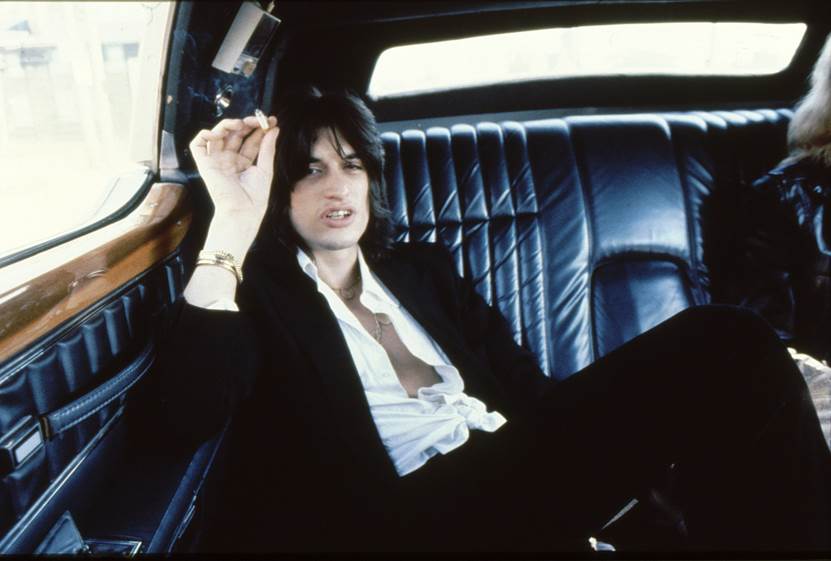
Somewhere after the second British invasion and shortly before the advent of disco and punk, five guys from 1325 Commonwealth Ave. in Boston began finding their niche to take over the world.
They bucked the system at every opportunity, while at the same time set a precedent for a generation of bands that would follow.
Aerosmith guitarist Joe Perry's story has been full of ups and downs. Finally, it’s a story worth telling. Perry’s new memoir, Rocks: My Life In And Out of Aerosmith, is an honest reflection of the life and career of one of rock’s all-time greats.
Throughout its pages, Perry pulls no punches in detailing the rise, fall and second coming of one of the greatest American rock bands. He speaks candidly about his early love of the wilderness, his conflicts with authority (including his refusal to cut his hair in school), drug abuse, dealing with controlling managers and his stormy relationship with Aerosmith vocalist Steven Tyler.
In addition to a plethora of amazing photographs, Rocks contains a detailed appendix featuring the guitars and gear Perry has used throughout his career. It's a treasure trove of information for guitar players and gear enthusiasts.
Perry’s life journey is encouraging, inspiring and at times heartbreaking. But where Rocks really shines is in its ability to showcase a different side of human nature and just what it takes to get along.
Get The Pick Newsletter
All the latest guitar news, interviews, lessons, reviews, deals and more, direct to your inbox!
I recently had the pleasure of speaking with Perry about his new memoir; I also got updates on Aerosmith — and Perry's next solo album.
GUITAR WORLD: What made you decide to write a book at this stage of your career?
Not too long ago, there was a vibe. It was the 40th anniversary of the band and our last Sony record. There were also a lot of other things going on in our personal lives that made it seem like it was the end of one era and the beginning of another. That’s when my wife Billie asked me, “What do you think about writing a book?" There was something inside me that just clicked and it felt like it was the right time.
How big of a role has Billie played in your life?
As low as it had gotten at some points, if she wasn't around, I wouldn’t be here. We met at a time when I was far enough away from Aerosmith that the band wasn’t an issue. In fact, she didn’t even know who Aerosmith was. As far as she was concerned, I was just another struggling musician who played in a local band. She gave me a new lease on life — beyond the partying and all of that other stuff.
We’ve been together 30 years now and raised three kids. It’s been tough at times but that’s one of the reasons I wanted to write the book: to talk about how difficult it can be to keep a family together but still keep the band together as well. And it’s not just me. The four other guys in the band also had to live their lives and make it work.
At one point, you fell on hard times and had to sell your prized 1959 Les Paul. How much did you sell it for?
I don’t remember what I paid for it, but I think I got $3,500 for it at the time when I sold it. Then Eric Johnson called me after he had heard that the guitar he bought was once mine and offered it to me for what he paid for it [which was $8,500]. I didn’t have the money at that time and had to pass. Eventually, Slash wound up with it and just gave it to me as a gift. Whatever inspired him to do that is just an indication of what a great heart the guy has. I really consider him a close friend.
What made you decide to include a section on the guitars and gear you’ve used over the years?
Fans would always come up and ask me what guitars I used on certain albums or what gear I used when I played live or in the studio. I decided that if I was really going to get into guitars and equipment, it couldn’t just be a part of the story. So I started brainstorming and decided to put in an appendix that just deals with the gear. It was fun for me to go back and look at pictures of the guitars and me standing with my old guitar techs. It’s there for the guitar players and doesn’t get in the way of the main story, which deals more about human nature and not transistors.
In the book you discuss a lot of the conflicts with ex-girlfriends, drugs and management, but perhaps nothing hurt you more deeply on a personal level than when Steven auditioned for Led Zeppelin and took on a judge role on American Idol without first informing the band. How hurt were you by those decisions?
On the short list of emotions, I was puzzled and hurt. Obviously it was bullshit. But I’ve become so used to that over the years, and we know all how to deal with that with each other. Whatever it was we were going through, we always learned how to leave it behind and work together because we always respected each other’s talent. But we’ve never gotten into a fistfight, and anyone who tells you that is full of shit. If you ever see two silver-backed gorillas going at it — they wreck the cage but they don’t touch each other [laughs]. That’s kind of the paradigm it used to be.
On another level, it was like how could someone look you in the eye and say one thing and then the next day come to find out that not only is he doing the exact opposite, but he also knows full well how what he’s doing is going to affect me> To this day, I still can’t figure it out.
Can you give me an update on your next solo album?
Normally, it would be done by now, but so much time has been taken up working on the book, touring and getting the last Aerosmith album out. It’s definitely on the top of my “A” list. I do have six songs that have great potential. I also have a bunch of material I need to listen to. I’m really looking forward to getting back into it sometime this fall or at the very latest, the beginning of the new year.
Has there been talk about a new Aerosmith album or maybe something to celebrate the 40th anniversary of Toys In The Attic?
There are so many options on the table, but right now everyone needs some time to breathe. We’ve talked about doing some gigs next year and possibly doing some recording. Once we have some time to kick back we’ll figure out what’s next for the band.
Do you have any regrets?
Yeah, I can probably give you a few dozen [laughs]. Certainly if I could go back I would do things differently. But looking back, I think everything happens for a reason, and for as hard as some of the things were it was something that I had to live through.
If you were deep in the heart of the Vermont wilderness during the peak of fall season and only had one album to listen to, what album would that be?
If you want to know the truth, I wouldn’t listen to any album because I love the sound of the woods better. But I have to say that one of my favorite records to listen to now is Night In The Ruts [1979]. It doesn’t get much call for us to play songs off of, but it’s some of the best playing the band ever did. It got overlooked because it was the one where I left and we never got a chance to play it live and really push it the way we should have. I thought there were some really good songs on that one. It’s one of the ones I miss hearing more.
At one point in the book you talk about standing on the street corner looking up at 1325 Commonwealth and wondering what the 20-year-old Joe Perry would think about the Joe Perry of today. I’d like to ask you the opposite. What bit of advice would the Joe Perry of today give to that young kid about to take on the world with Aerosmith?
I probably would tell him to put his foot down a little bit harder when it came to dealing with lawyers and managers. Everything else as far as our creativity, the way we got along and all of that other stuff was something we all had to go through.
For more about Perry, visit joeperry.com.
James Wood is a writer, musician and self-proclaimed metalhead who maintains his own website, GoJimmyGo.net. His articles and interviews are written on a variety of topics with passion and humor. You can follow him on Twitter @JimEWood.
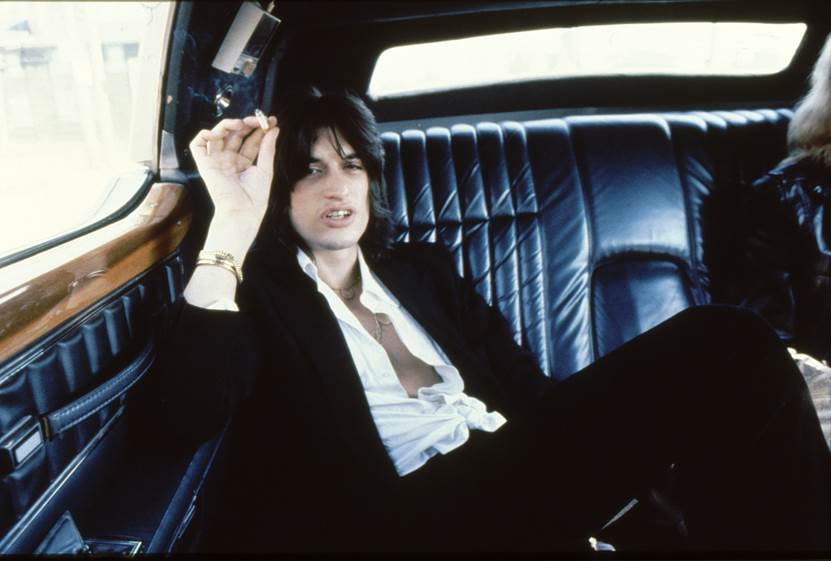
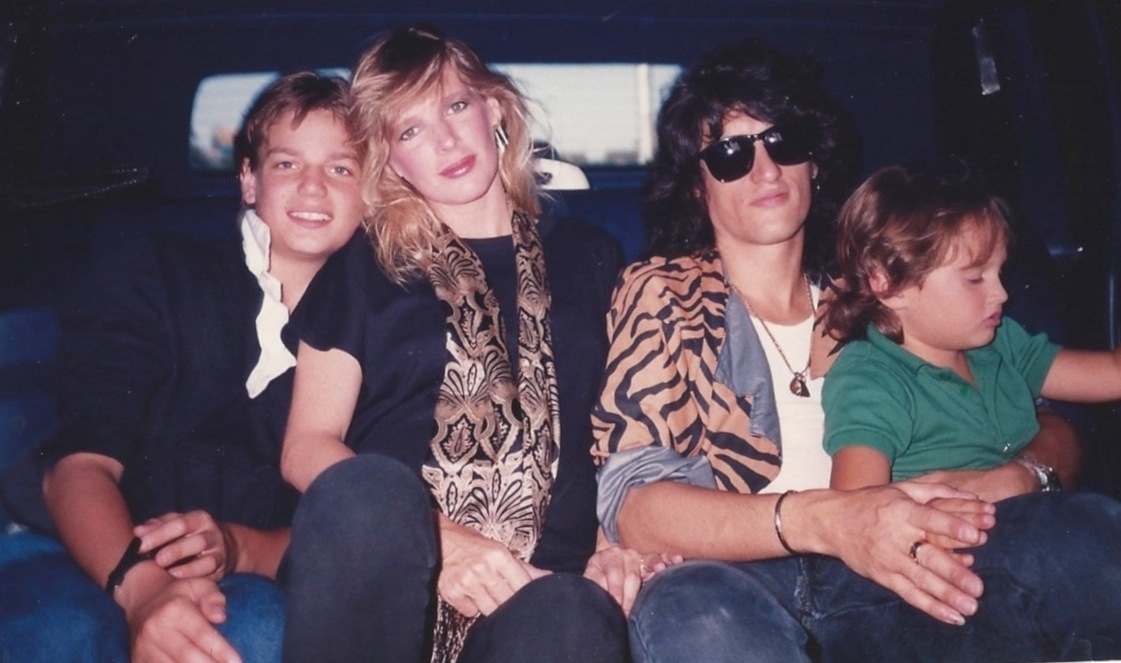



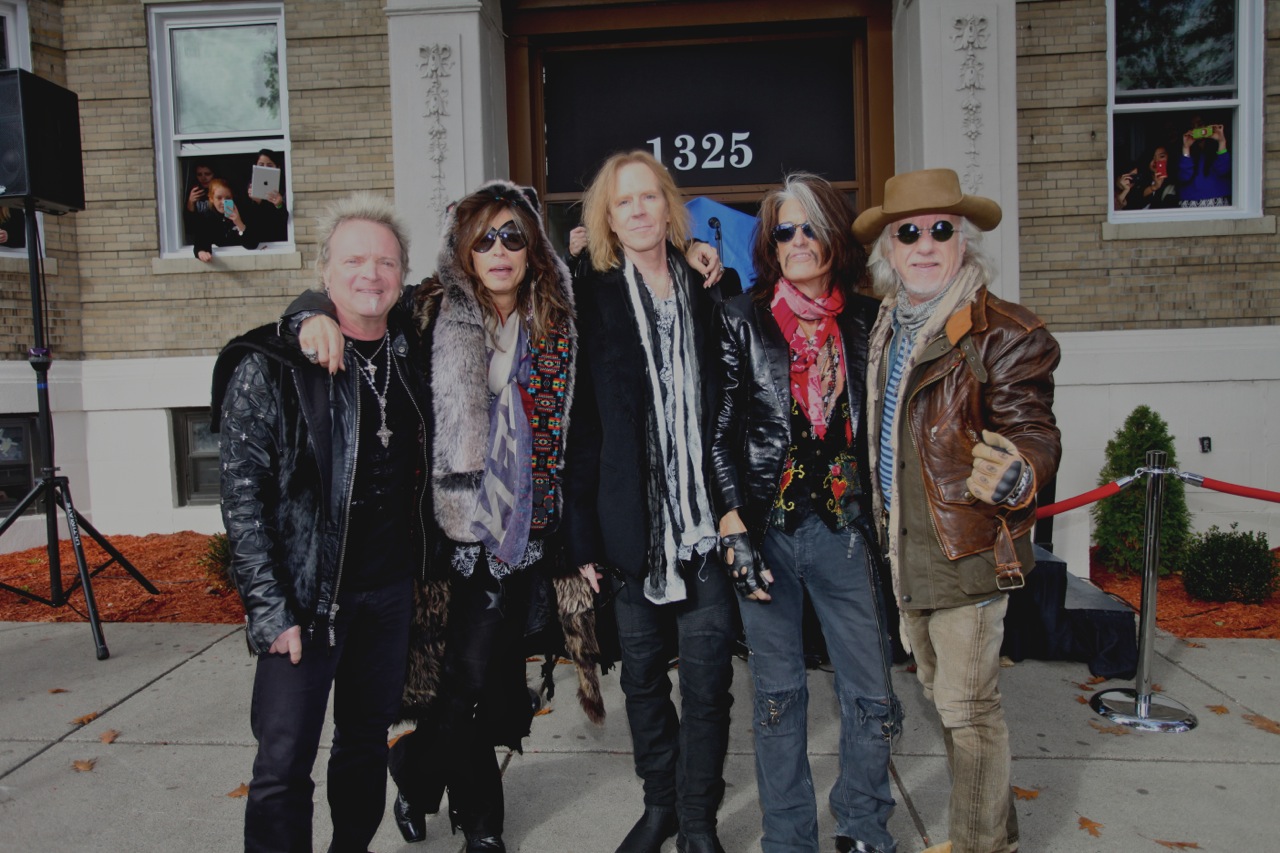
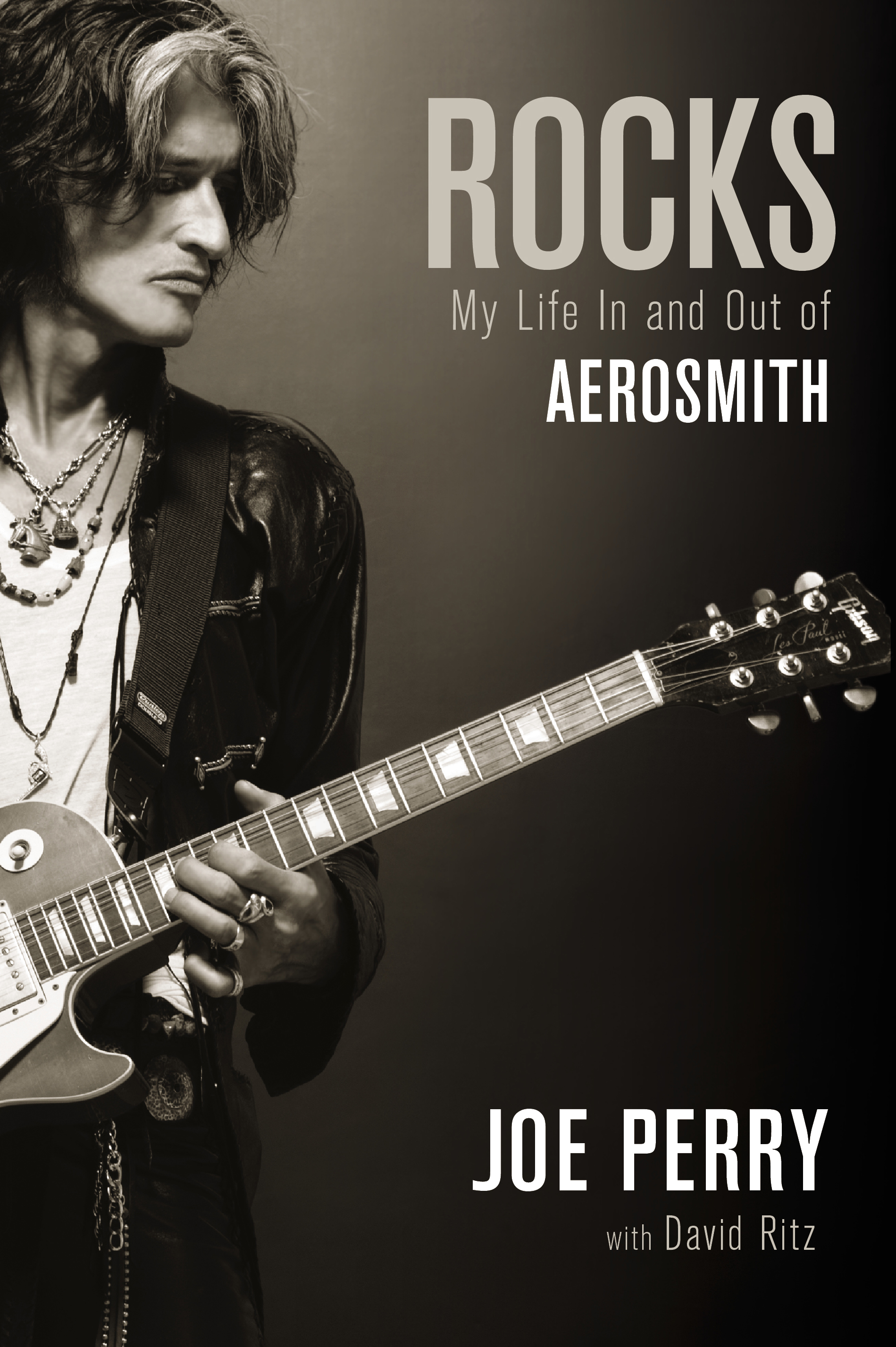
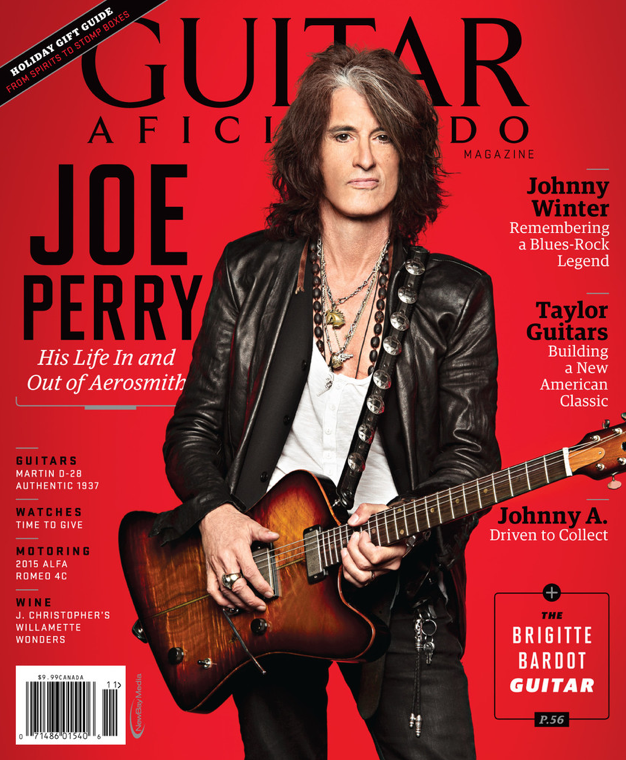
James is a guitarist and freelance writer who's interviewed some of the biggest names in music. He is the author of four books and his writing credits include work for Guitar World, AXS and Yahoo! as well as for his hometown newspaper where he writes on a variety of topics with both passion and humor. As a guitarist, he's performed everywhere from local bars and nightclubs to some of the biggest stages in front of thousands of music fans.
“Every tour was the best I could have done. It was only after that I would listen to more Grateful Dead and realize I hadn’t come close”: John Mayer and Bob Weir reflect on 10 years of Dead & Company – and why the Sphere forced them to reassess everything
“Last time we were here, in ’89, we played with Slash on this stage. I don't remember what we did...” Slash makes surprise appearance at former Hanoi Rocks singer Michael Monroe's show at the Whisky a Go Go
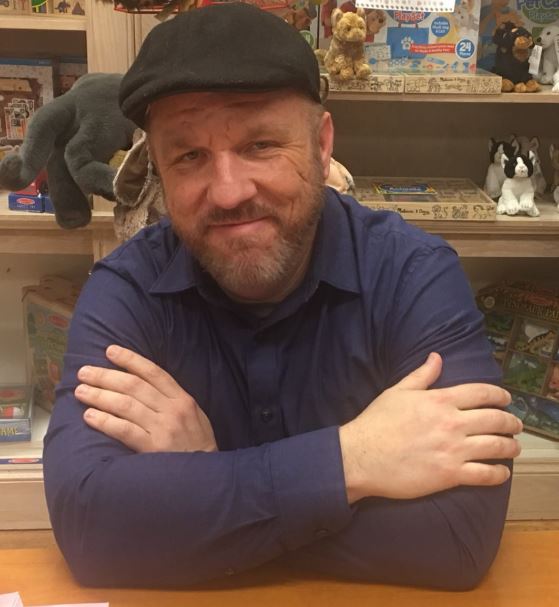

![John Mayer and Bob Weir [left] of Dead & Company photographed against a grey background. Mayer wears a blue overshirt and has his signature Silver Sky on his shoulder. Weir wears grey and a bolo tie.](https://cdn.mos.cms.futurecdn.net/C6niSAybzVCHoYcpJ8ZZgE.jpg)

![A black-and-white action shot of Sergeant Thunderhoof perform live: [from left] Mark Sayer, Dan Flitcroft, Jim Camp and Josh Gallop](https://cdn.mos.cms.futurecdn.net/am3UhJbsxAE239XRRZ8zC8.jpg)






